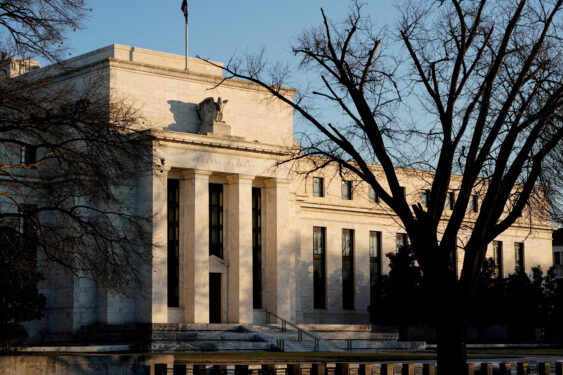THE Malaysian equity market Bursa Malaysia navigated through the anticipated downturn in the US in 2023 unscathed, defying market expectations. Analysts had forecast a recession in the US but the economy held up remarkably well, creating a positive backdrop for global markets.
However, as 2024 unfolds, market analysts caution that challenges lie ahead with a hard landing for the US economy still considered a distinct possibility.
“2023 took investors by surprise in many ways. The much-heralded recession in the US did not materialise as its economy held up remarkably well,” stated AHAM Asset Management Bhd in a recent report.
“So far, global economies have held up well despite tighter financial conditions this year. However, monetary policy often works with a lag, and we may see US and global GDP growth soften in 2024 as demand subsides.
“While the risk of a hard landing cannot be ruled out, it is tempered by the return of the ‘Fed put’ as inflation continues to ease.”
After raising interest rates by 500 basis points (bps), the US Federal Reserve (Fed) recently signalled it was done with hiking rates and would likely start cutting in 2024.
Moreover, the Fed’s recent signal of a pause in interest rate hikes and the likelihood of rate cuts in 2024 could have significant implications for emerging markets (EMs) and Asia, placing them in a favourable position to benefit from the dovish pivot.
“In the past five hiking cycles since 1995, EMs displayed strong outperformance benefiting from an influx of foreign flows and a waning US dollar after the last Fed hike,” it added.
Emerging markets, including Bursa Malaysia, have historically demonstrated strong outperformance in the aftermath of previous Fed rate hike cycles.
AHAM Asset Management sees conditions becoming more conducive for equities with a stable interest rate outlook, potentially benefiting the Malaysian market. Encouraging signs of foreign inflows since July 2023, coupled with an expected corporate earnings recovery, add to the positive outlook for Bursa Malaysia.
Historical patterns suggest a strong correlation between KLCI returns and foreign flows as seen over the past 10 years. Another key catalyst for Bursa Malaysia is corporate earnings which are expected to recover from a low base, according to the financial institution.
Meanwhile, AHAM Capital product solutions and customer experience chief officer Anton Tan underscores the importance of monitoring geopolitical risks in 2024.
“Despite recent easing tensions between the US and China, the proximity of the US presidential election and general elections in countries like India, Taiwan, and Indonesia pose potential risks.
“Investors should remain vigilant as geopolitical events have the potential to influence market dynamics.”

Nevertheless, concerns about the US market loom large.
While the Dow Jones Industrial Average (DJIA) and the S&P 500 reached new all-time highs in 2023, Pheim Asset Management executive chairman and chief strategist Dr Tan Chong Koay warned of overvaluation.
“The US market is very overvalued. The US is the leader as far as equity investors are concerned. So when the US corrects, markets around the world, including Bursa Malaysia, will follow suit. You need to be a bit cautious. Definitely, you should not be fully invested,” he added.
Furthermore, Tan urged investors to be prepared for unforeseen events, citing the example of various crises – the early 2020 market crash triggered by the COVID-19 pandemic, the Russia-Ukraine conflict and the current Gaza crisis.
“Between Feb 12, 2020 and March 23, 2020, the DJIA crashed 11,355 points, a 38.4% drop within five-and-a-half weeks, the biggest drop in history for that time period,” said Tan.
Tan also pointed out that during the same period, indices in Asean countries dropped substantially, from -35.75% in the Philippines to -18.35% for the KLCI. Malaysia’s small-cap index (FBMSC Index) saw an even bigger drop of -42.77%.
“Interestingly, in the subsequent market recovery, the FBMSC Index was also the big gainer among Asian indices, posting a 102.43% surge as of Dec 31, 2020 from its lowest point in February 2020,” he further added.
The speed and severity of the downturn led to substantial losses in markets worldwide, emphasising the need for vigilance and the ability to capitalise on opportunities during market downturns.
As the Malaysian equity market keeps a watchful eye on global economic developments, the potential for a black swan event in 2024 remains a concern. – Dec 29, 2023
Main photo credit: The Malaysian Reserve









